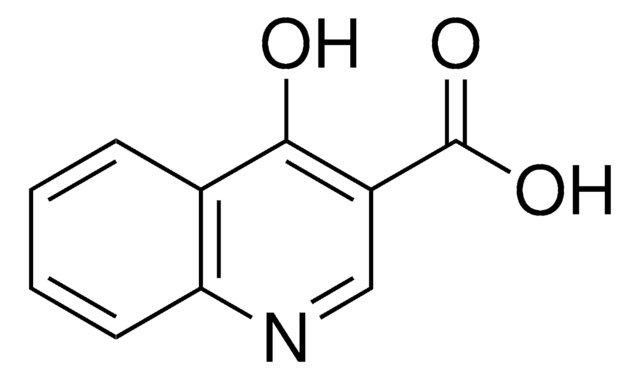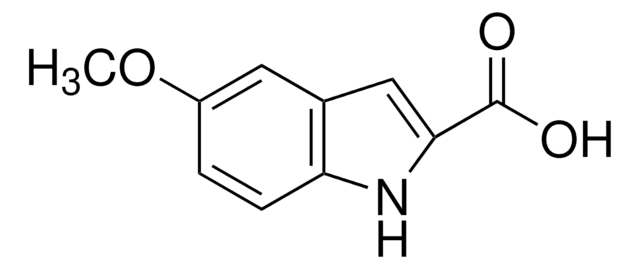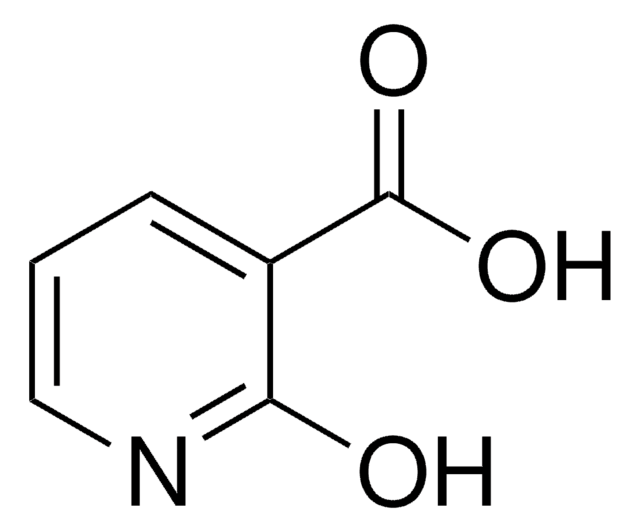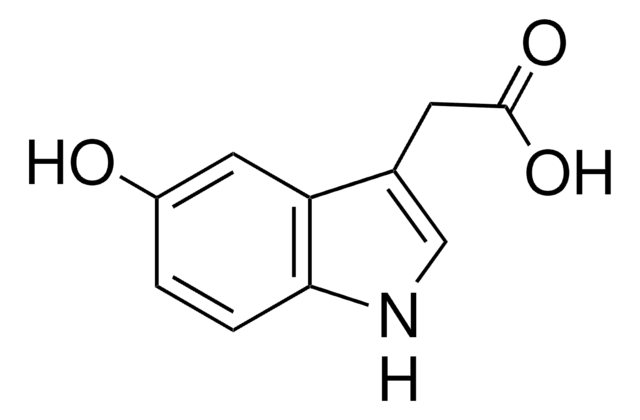143510
5-Hydroxyindole-2-carboxylic acid
≥96.5%
Synonym(s):
NSC 117338
Select a Size
Select a Size
About This Item
Recommended Products
Quality Level
Assay
≥96.5%
form
powder
mp
249 °C (dec.) (lit.)
solubility
chloroform/ethanol (1:1): soluble 50 mg/mL, clear to slightly hazy, yellow to brown
functional group
carboxylic acid
SMILES string
Oc1ccc2[nH]c(cc2c1)C(O)=O
InChI
1S/C9H7NO3/c11-6-1-2-7-5(3-6)4-8(10-7)9(12)13/h1-4,10-11H,(H,12,13)
InChI key
BIMHWDJKNOMNLD-UHFFFAOYSA-N
Looking for similar products? Visit Product Comparison Guide
General description
Application
- Reactant for preparation of indole C5-O-substituted seco-cyclopropylindole analogs as potential anticancer agents
- Reactant for microwave combinatorial synthesis of indolic arylpiperazine derivatives as ligands for 5-HT1A, 5-HT2A, and 5-HT2C receptors
- Reactant for preparation of melanins as novel nature-inspired radioprotectors
- Reactant for preparation of 5-Hydroxyindole-2-carboxylic acid amides as histamine-3 receptor inverse agonists for the treatment of obesity
- Reactant for preparation of conformationally constrained peptidomimetic inhibitors of signal transducer and activator of transcription 3 (Stat3)
- Reactant for preparation of oxadiazole analogs as nonpeptidic SH2 inhibitors of tyrosine kinase ZAP-70
Storage Class Code
11 - Combustible Solids
WGK
WGK 3
Flash Point(F)
Not applicable
Flash Point(C)
Not applicable
Personal Protective Equipment
Regulatory Listings
Regulatory Listings are mainly provided for chemical products. Only limited information can be provided here for non-chemical products. No entry means none of the components are listed. It is the user’s obligation to ensure the safe and legal use of the product.
JAN Code
143510-5G:
143510-VAR:
143510-BULK:
143510-250MG:
143510-1G:
Choose from one of the most recent versions:
Already Own This Product?
Find documentation for the products that you have recently purchased in the Document Library.
Customers Also Viewed
Our team of scientists has experience in all areas of research including Life Science, Material Science, Chemical Synthesis, Chromatography, Analytical and many others.
Contact Technical Service









